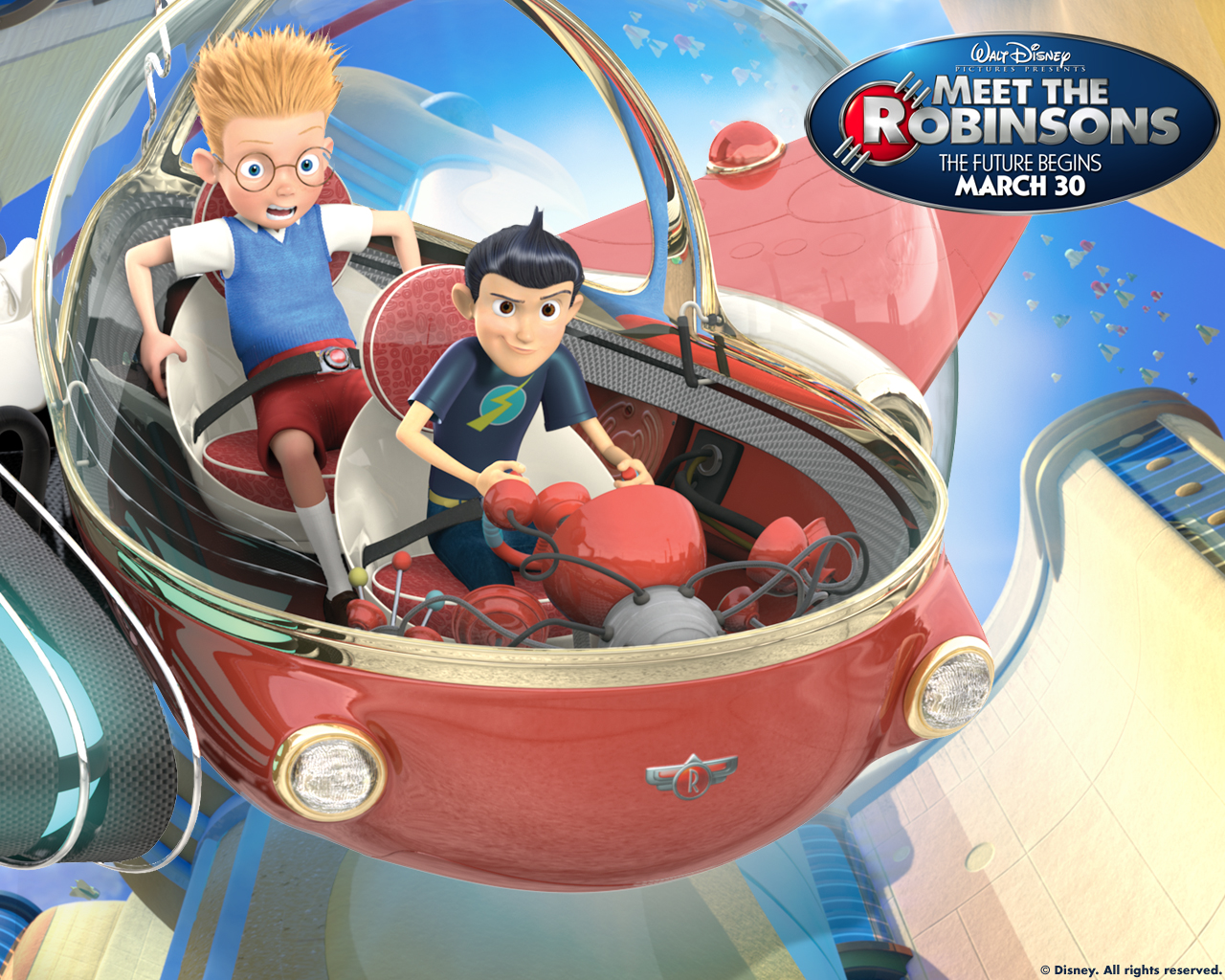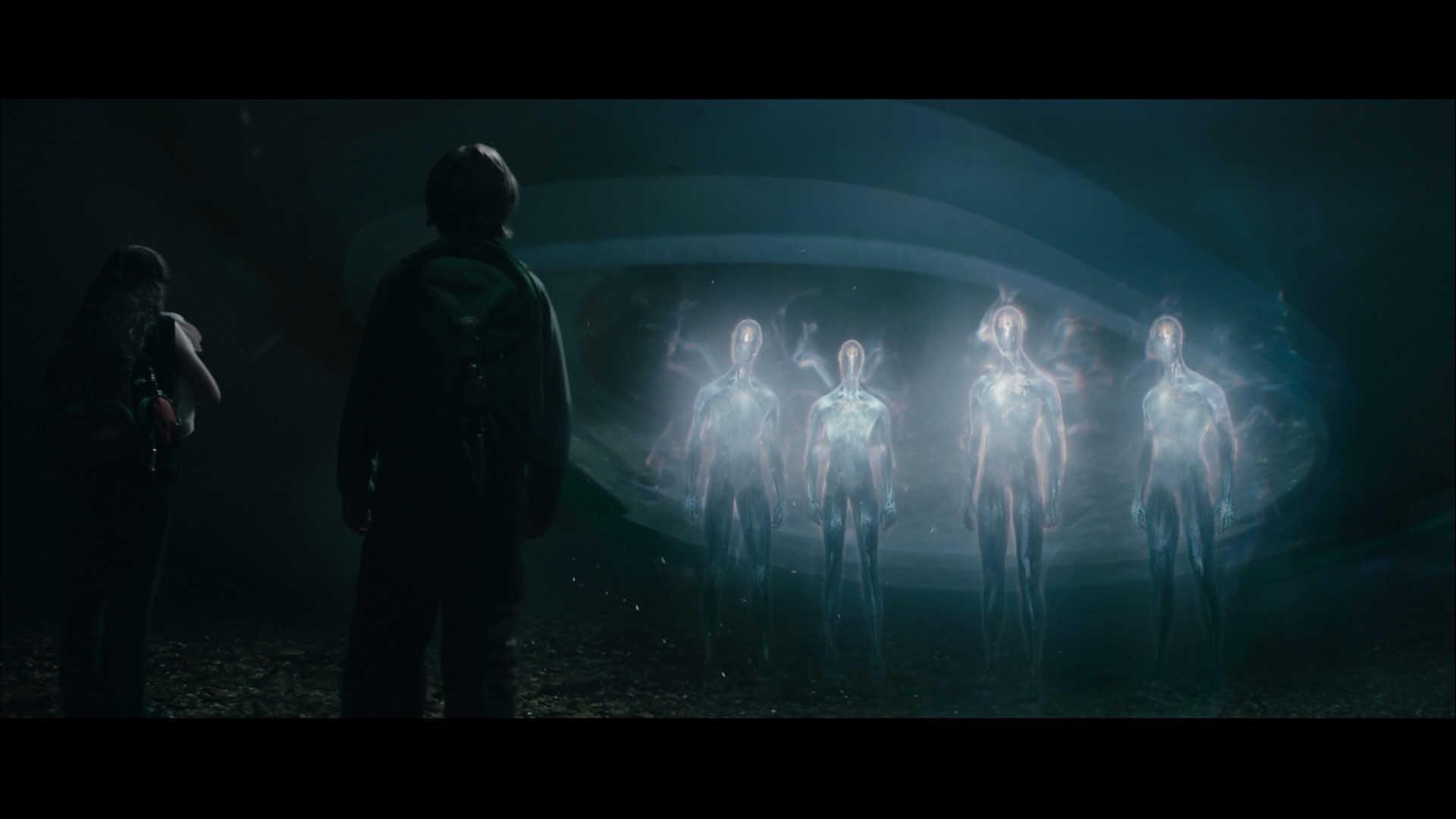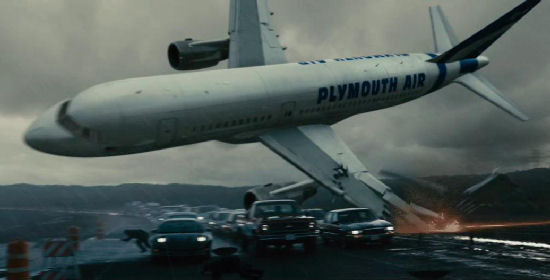Friday, August 3, 2012
Entry 20, Chapter 10 - So It Goes...
Vonnegut, mixed with his character of Billy Pilgrim reveal through the story extreme expression in his stories, but like I said, at the end, he seems to lose his expression. His trademark phrase "so it goes" really tells a reader that he himself is unaware if the rumor he had heard was even true, but towards the end, this phrase is used more and more often, creating an annoying repetition and montone, as if he was now viewing the rumors as completely untrue. Comapred to his past tone, he made me think that the statemnets were true, but in the last chapter, he showed me that he honestly thought taht the rumors were false.
Entry 19, Chapter 10 - Stream of Consciousness
In the ending chapter of the story, Vonnegut reveals his stream of consciousness which is his bluntness when it comes to his emotional jouney throughout the war. He dimly describes the corpse mines like they are nothing as," Billy and the Maori dug into the inert...they made a hole in the membrane. There was darkness and space under there." Vonnegut goes on through the chapter as if nothing was of sort or important, like the war was simply a blur to him, but in the back of his mind, and through his detailed descriptions of the past scenes, Vonnegut knows that what he had seen in Dresden was everlasting. His stream of consciousness was so monotone and completely uninterested as compared to his passed thoughts.
Entry 18, Chapter 9 - Recall the Good, Forget the Bad
 I recently read a book called Heart 2 Heart about a girl who lost her life in a crash crash who made a decision to be a donor when she turned 16. Later on, the girl who recieved the deceased teenager's heart reached out to the best friend of her donor. During their visits, the bestfriend of the donor became very aware of the idea that she should always cherish the good moments because she never knew when her life would end. The girl who recieved the heart, was on the brink of death, and she made it clear to everyone in her life that everyday she wanted to remember only the good moments because she had experienced so many unhappy memories during her heart failure before the transplant. This book reinforced one of the themes of the book, remember the good and forget the bad.
I recently read a book called Heart 2 Heart about a girl who lost her life in a crash crash who made a decision to be a donor when she turned 16. Later on, the girl who recieved the deceased teenager's heart reached out to the best friend of her donor. During their visits, the bestfriend of the donor became very aware of the idea that she should always cherish the good moments because she never knew when her life would end. The girl who recieved the heart, was on the brink of death, and she made it clear to everyone in her life that everyday she wanted to remember only the good moments because she had experienced so many unhappy memories during her heart failure before the transplant. This book reinforced one of the themes of the book, remember the good and forget the bad.Entry 17, Chapter 9 - Theme
A theme, reinforced by the Tralfamadorians, is that we need to always remember the good moments and forget the bad memories. The natives of Tralfamadore were," to advise Billy to concentrate on the happy moments of his life, and to ignore the unhappy ones." Themes in stories are there to advise the readers to learn something about life and possibly enforce in their own lives. This theme about forgetting the terrible memories, I think, should be adopted by everyone.
Entry 16, Chapter 8 - Time Travel
 Traveling through time has been a reoccuring idea all throughout the book. The fact that Billy believes he is time traveling shows that the plane crash he was in really messed up his mind. In the media, time traveling has been something really cool to produce movies, books, etc. about from Disney movies like Minutemen, animated movies like Meet the Robinsons, and of course, in science fiction books like Michael Cricton's Timeline. All of these were entertaining to watch and or read, but if we were to hear about it in real life, we would simply think of the stories as crazy and incredulous, but in the fictional world, we find these stories creative and imaginable. Billy time travels almost constantly throughout the book, making it quite hard to follow, but eventually the stories start to become familiar and you begin to realize that you are tracing his life, just in a different pattern.
Traveling through time has been a reoccuring idea all throughout the book. The fact that Billy believes he is time traveling shows that the plane crash he was in really messed up his mind. In the media, time traveling has been something really cool to produce movies, books, etc. about from Disney movies like Minutemen, animated movies like Meet the Robinsons, and of course, in science fiction books like Michael Cricton's Timeline. All of these were entertaining to watch and or read, but if we were to hear about it in real life, we would simply think of the stories as crazy and incredulous, but in the fictional world, we find these stories creative and imaginable. Billy time travels almost constantly throughout the book, making it quite hard to follow, but eventually the stories start to become familiar and you begin to realize that you are tracing his life, just in a different pattern.

Entry 15, Chapter 8 - Hubris
Hubris is simply a tragic flaw that leads to a character's downfall. Billy begins his downfall with his status in society towards the end of his life because of his gullibility. Billy begins to believe everything he is seeing and reading in Kilgore Trout's science fiction books that lead to the crazy thoughts of Billy's that Tralfamodorians exist and abducted him. Later on, as Billy is giving a speech to people about the truths behind his Tralfamodorian friends, Lazarro comes and finds Billy years later and fulfills his threat of taking Billy's life. In the end, Billy becomes distanced from his family, optometry patients, and his life because of his belief that he had become unstuck in time. His daughter, his own flesh and blood blames," That Kilgore Trout," because he," is and was a science fiction writer...that anyone can become a friend of."
Entry 14, Chapter 7 - All Knowing?
 The plane crash Billy Pilgrim was involved with reminded so much of the movie Knowing with Nicholas Cage. In the movie, Nicholas Cage realizes that he has found a peice of paper with thousands of numbers on it that are in fact dates of castrophic events. He follows one of the dates to its location, and there he knows that something bad is going to happen and in fact moments later a place crashes into a fire ball along a highway. Just as Billy experienced, he knew that the event of the crash was going to happen yet he went along with it, just as Nicholas Cage did also. Plus, a plane ended up crashing in which Nicholas was to help save one survivor. Along with gruesome imagery, and pictures in the movie and in the book, Billy and Nicholas experience something very similar; Nicholas even had alien-like people following him!
The plane crash Billy Pilgrim was involved with reminded so much of the movie Knowing with Nicholas Cage. In the movie, Nicholas Cage realizes that he has found a peice of paper with thousands of numbers on it that are in fact dates of castrophic events. He follows one of the dates to its location, and there he knows that something bad is going to happen and in fact moments later a place crashes into a fire ball along a highway. Just as Billy experienced, he knew that the event of the crash was going to happen yet he went along with it, just as Nicholas Cage did also. Plus, a plane ended up crashing in which Nicholas was to help save one survivor. Along with gruesome imagery, and pictures in the movie and in the book, Billy and Nicholas experience something very similar; Nicholas even had alien-like people following him!
Entry 13, Chapter 7 - Imagery
Billy used vivd imagery to describe the plane crash he was involved in by saying that." the young people in bright, elastic clothing and enormous boots and goggles, bombed out of their skulls with snow, swinging through the sky in yellow chairs." Billy tends to reveal to his audience what he thinks things look like. Images tend to stick in one's mind, like after reading the above description one can think that the skiers that rescued him from the plane crash were ostentatious and were quite dedicated to their hobby of skiing.Revealing these pictures to the audience pretty much give away exactly what kind of opinions Billy had formed concerning his rescuers.
Entry 12, Chapter 6 - Taken for Revenge
Lazarro sought revenge for many people, just as the father in the movie Taken. His daughter in the movie is kidnapped and sold as a sex slave, and for revenge for the evil men taking his daughter, the father comes after the men in sight to hunt and kill them. The father in this movie had a character similar to Lazarro's as flat and with one motive to defend his daughter and seek revenge on those who took her from him. The movie sent its viewers a message about seeking revenge, its not good to dwell on something, but it always seems to be for the right reason.


Entry 11, Chapter 6 - Flat Character
A flat character is a character who displays only one or two personality traits, and that is exactly what Paul Lazarro is. The man threatens Billy Pilgrim's life after Weary dies in his arms on the train, and as Weary's dying request he wanted someone to please avenge his death which was caused by Billy. Throughout the story, Lazzaro is seeking vengeance on not only Billy, but many other people who have stood in his way as he told Billy that," he was going to have him killed after the war." Lazzaro shows one and only one side to his personality, that he is always looking for revenge and is bloodthristy. The threats he made were not to be fulfilled until many years later, but with Billy's time travel, he knows that Lazarro will follow through with his threats. Lazarro's flat character in the end show his dominance over Billy in the end.
Entry 10, Chapter 5 - Comedians
Without satire, the world would be an unpleasant place with moody people in dramatic situations. whenever I think of satire, I think of comedians. Comedians have a special talent of making quiet, awkward situations into situtions filled with laughter by just making a funny comment. Crowds will go wild in hysterical laughter when comedians like Jim Gaffigan, Larry the Cable Guy, or even Joan Rivers. Pilgrim relieves drama in his stories through satire; he might be describing a supposed rumor as to how someone died, but at the end of the passage he will make some comical remark to lessen the severity of the rumor.




Entry 9, Chapter 5 - Satire
Satire provides a story with humor, and in the middle of a book concerning war, satire is something useful in order to calm the reader down and make them understand and enjoy the story rather than just sympathize with. Billy Pilgrim randomly mentions humorous events like his dream he once had while under morphine in a hospital when." giraffes accepted Billy as one of their own, as a harmless creature...they had horns like doorknobs. The knobs were covered in velvet." What significance does this small passage have? In other parts of the chapter, Billy offers his insight on situations like being in a zoo, arguing with his daughter, and listening to Englishmen with funny comments and retorts.
Entry 8, Chapter 4 - Frozen
The epithet of "blue and ivory" in Slaughterhouse-Five is an appalling phrase that makes you recall dead bodies that have frozen from extreme cold or the repulsive frost-bite one gets in extreme cold. Whenever Pilgrim used this phrase to describe the frozen and dead bodies of people around him, I couldn't help but remember the dramatic movie The Day After Tomorrow, when a climate shift from global warming freezes over the northern half of the United States, and a group of students find themself in New York City freezes to death and witnessing the castrophe the world had never seen. The scenes in the movie show ice cold bodies practically as hard as ivory frozen to the streets of New York, and even a picture of the Statue of Liberty buried to its torso and covered in icicles. The repition of this phrase makes me wonder if there is more death and peril to come in the cold days of the war.




Entry 7, Chapter 4 - Epithet
In chapter four, I noticed that Billy Pilgrim began using the phrase "blue and ivory" to describe various feelings in his feet to the look of the dead. If someone was to describe another person's feet as blue, I would assume their feet were very cold and lacking in circulation. Then, the word ivory makes me think that the feet are stone, and not moving as if circulation was nonexistent. Billy repeated this phrase many times in the book thus far as to describe his own feet as,"he looked down at his bare feet, They were ivory and blue," just as he described his hands as," a blue and ivory claw hooked over the sill of the veniliator." Blue and ivory are adjectives that have been used to describe coldness in one's body or in someone else's body, who is usually dead cold.
Entry 6, Chapter 3 - The Mood of Horrific Events
The sickening, and dreadful mood that was created in chapter three reminds me of what it seems to be like when a natural diaster hits. The Tsumnami in 2004 was heard all over the globe. Pictures were sent to newsteams across the world of devesation, starvation, and hundreds of dead. In the chapter, it wasn't a natural disaster that created the intense and grosteque picture, but a prisoner camp and trains, but still the mood creates dread. Hurricanes, tsunamis, and landslides, especially occuring in poorer areas, create a more dreadful and misery filled picture just like the mood in the chapter.


Entry 5, Chapter 3 - Mood
Throughout chapter three, Billy is being sent through time from his days in the war to the days of his lucrative optometry practice. During his war days, he descibes the horrendous sights he saw when entering into Germany as a prisoner of war along with his friend Weary. The mood of this chapter is completely dreadful because of the detailed descriptions of dying prisoners like the colonel who wanted to be called "Wild Bob". Creating a dreadful mood in this chapter was done by gruesome descriptions and similes of bloody feet, dying soldiers, and lack of food. The treatment and environment around Billy was appalling as."in went water and loaves of black-bread and sausage and cheese and out came sh*t and piss and language." The mood of the chapter also created a sickening feeling. All in all, the prisoner trains and camps was somewhere the reader did not want to be.
Entry 4, Chapter 2 - Cliche Alien Abductions
When I first read Billy's passages describing his kidnapping by the Tralfamordians, I had a reaction like most people would have when hearing about a supposed "abduction by aliens." The idea that someone was kidnapped by aliens is so cliche in my mind, but Billy Pilgrim told his story in such a serious manner as though," that everything that he had said on the radio was true." I remember first hearing about the Rosewell UFO incident when I was in elementery school, and like any other sane kid, I believed that the whole incident was made up or simply blown out of porportion. That was a reaction most people have when they hear anything concerning the existence of aliens, and Billy Pilgrim was revealed in the book that his mindset was probably not all there. Many sightings of UFOs and reports of abduction have been told, but in the end most of these witnesses are claimed to be people with mental disorders or are looking for attention. Billy Pilgrim has been revealed to me, as every other "abductee" has been to me, a lunatic.




Entry 3, Chapter 2 - Characterization
Revealing a character's personality, can make or break the decision of a reader to continue reading the book. Billy Pilgrim begins his story with background on his life before, during, and after the war when he descirbes Pilgrim's adventures in optometry, family development, and his life in the war. Billy explains to his reader that he was not exactly fit to be a soldier after being drafted soon after starting college. Vonnegut shows his reader that Billy was a normal guy, pulled into something much bigger than he could handle. This makes us, the readers, identify with Billy as an average Joe, who like the rest of us, are forced to do something we aren't fit to do. Later in the chapter, Billy begins his story about his life post war, when he was involved in a plane crash and developed a new outlook on life after becoming associated with aliens he called the Tralfamadorians. The reader now begins to feel that Billy is actually a character with a strange mind along with the other characters, like his daughter, agree with. Overall, Vonnegut reveals at first a Billy Pilgrim who was just like the rest of us, but then when talking about his post war days, shows the reader that Billy is a man with a possible psychotic mind when he said,"he had been kidnapped by the Tralfamadorians on the night of his daughter's wedding,"which was a cliche phrase said by those in the past years who had said they had been "abducted by aliens".
Thursday, August 2, 2012
Entry 2, Chapter 1 - The "Good" of War?
Vonnegut's expression of disapproval for war was not only shown through his dialogue, but through the words of Mary O'Hare. The content of Mary's statement," You were just babies in the war - like the ones upstairs" really summed up something I personally have felt for years about. War, guns, violence, etc, has never made me think that these things were made to protect us in the plan for attack. Vonnegut told his sons, "not to work for companies which make massacre machinery, and to express contempt for people who think we need machinery like that" because of his dissaproval for war itself. Guns and massacre machinery have just seemed so unecessary to me as a result of hearing about tragic events around the world. Recently, after the emotional Colorado movie theatre shooting, I have yet to understand why we, as a nation, allow anyone, proven sane or not, should be allowed to own and buy weapons like guns. Vonnegut himself is motivated to show the world that war isn't a good thing, and the production of massacre machinery is just something that further influences the "good" of war. Most people view tragic massacres in this country as "once in a blue moon" happenings like the Columbine High School and Virginia Tech shootings in the past years. Yet, all of this could be somewhat avoided if the production of weapons was lessened. War is not something to have adulation for, and definitely should not egged on persay by the production of guns and massacre machinery. I applaud Vonnegut for expressing discontent on the production of massacre machinery, and for his book which will show the world that war is not a pretty thing and can affect families everywhere just by a decision to sell a gun to a man who might be planning to murder or injure inncoent men, women, or children in a movie theatre. The influence of war is everywhere, in the media and in our own schools when talking about the victories of our nations in past wars, but when will war ever be something to look upon as "good"?


Entry 1, Chapter 1 - Motivation
Motivating an audience is key to illustrating an overall picture as to why you even decided to write a peice of literature. Most authors choose to write about subjects that hit close to home. If one was from New York during 9/11, then producing a fictional story about a man who lost his life during the attack makes complete sense. Kurt Vonnegut openly informs his audience in the first part of the first chapter that he was writing this book to simply recall his stories during World War II and especially Dresden. Later on in the first chapter, Vonnegut visits his old war chum, Bernard V. O'Hare in order to gain some more insight on the stories that his own mind has forgotten. As his visit with O'Hare goes on, O'Hare's wife, Mary, finally expresses her dissapproval of the making of this book Vonnegut was composing because Mary strongly felt that the media such as books and movies were encouraging the idea that war is great and that young men fighting in these wars will mature from young, immature boys to strong-willed and mature men. Blunt in anger, Mary explains that,"you'll pretend you were men instead of babies, and you'll be played in the movies by Frank Sinatra and John Wayne or some of those other glamorous, war-loving, dirty old men. And war will look just wonderful, so we'll have a lot more of them. And they'll be fought by babies like the babies upstairs,"because in her mind the boys who go off to war are basically babies like her small children playing in upstairs bedrooms and that wars send these "babies" off to combat to witness and fight in and for something they barely can comprehend and are too weak-minded to witness. Vonnegut says that he wants to dedicate the book he was composing to Mary because of her sensible stands on the fact that war is not something to be applauded and praised, but something that needs to be explained first-hand and in a way for people to really see the brutality of war in a different way than the way that the media makes it appear. Building upon his formed opinion from not only his eyewitness accounts of the war, but along with the emotional opinions of families, Vonnegut uses personal and nonpersonal opinions to anchor his motivation to write his book in a way that shows people the real side of war and not just the side the media puts out that expresses praise for war.
Subscribe to:
Comments (Atom)